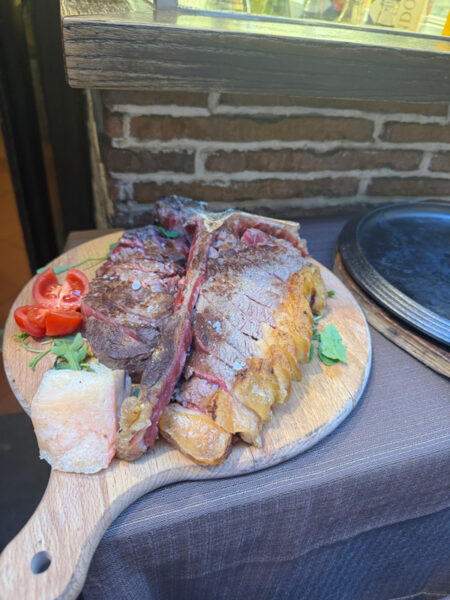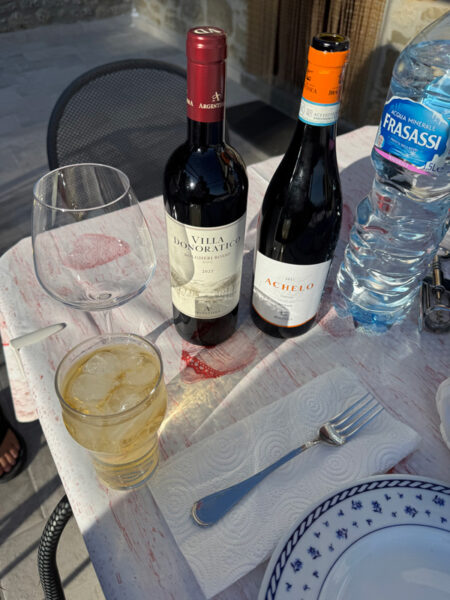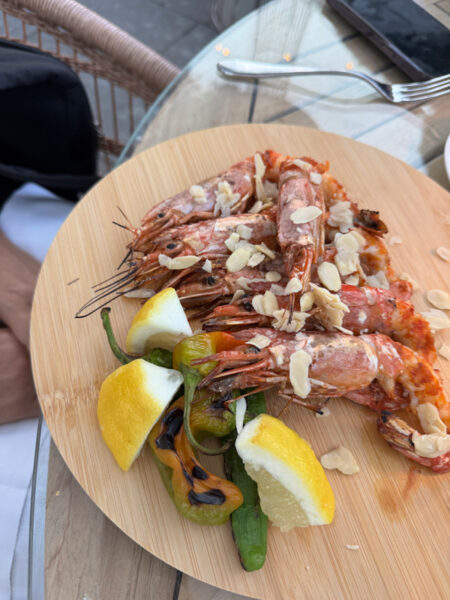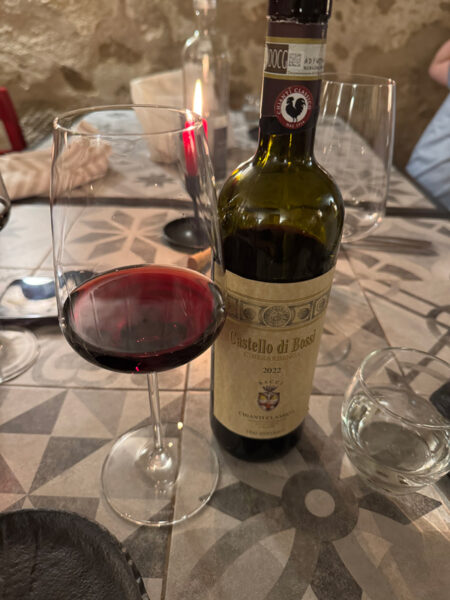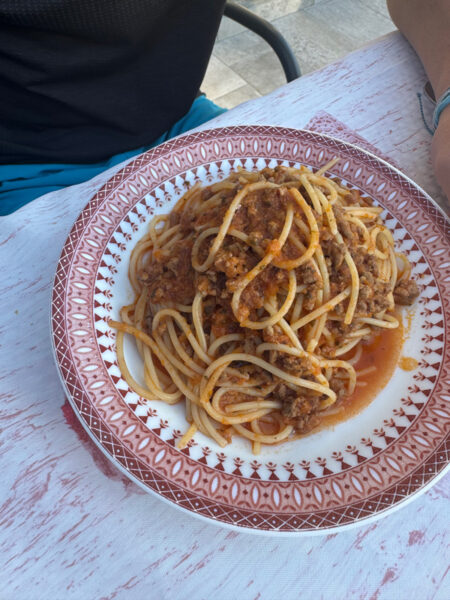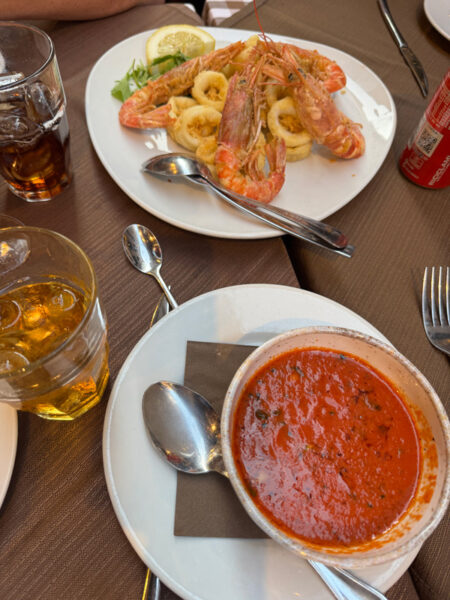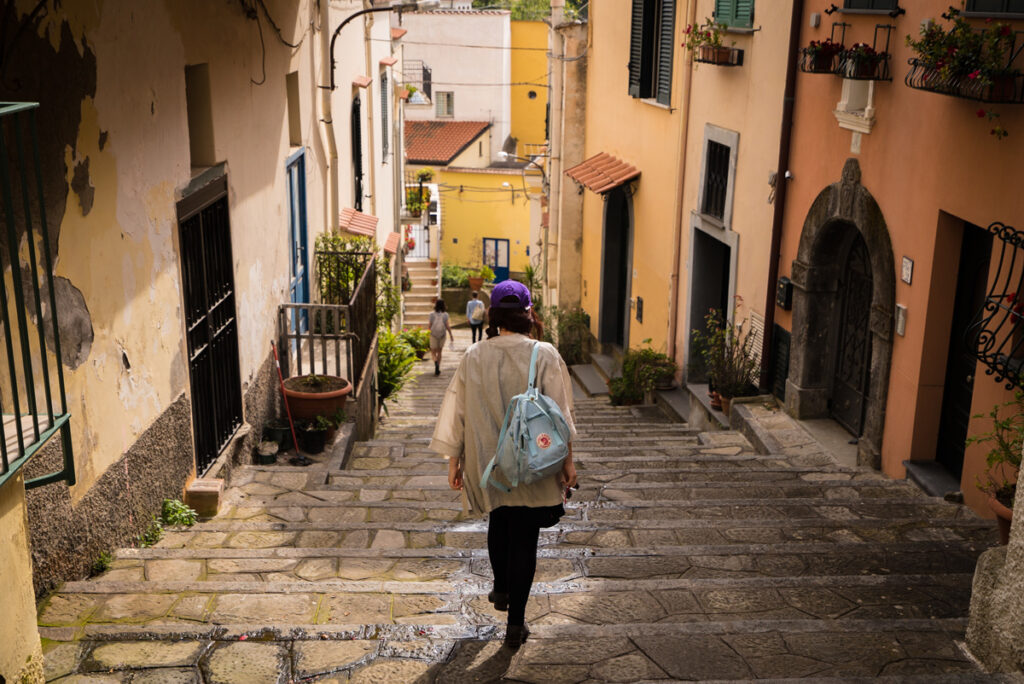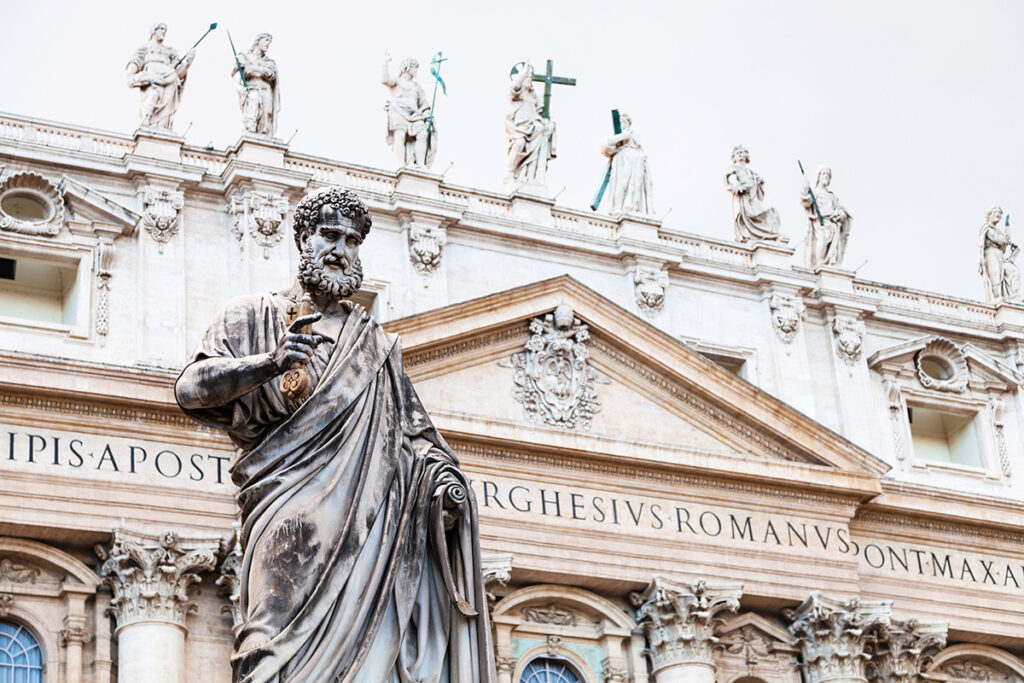Does Italy hold the secret to health and Longevity? La Doce Vita
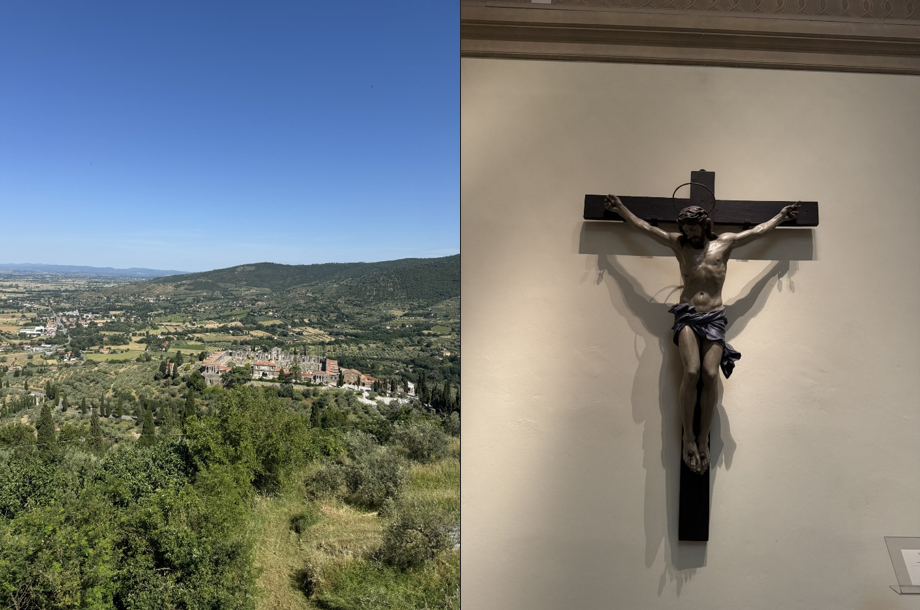
Last month, I spent 8 days in Italy on a family vacation. We rented a house in Tuscany in the hills overlooking Cortona and the Tuscan valley. We traveled all along the western coast of Italy, spent several days in Rome, Florence, Pisa, Forte de Marmi, Napoli and Pompei. This was my fourth trip to Italy but first time for the family and my first time in Rome and Tuscany. It was an amazing vacation. What stood out most and was most apparent to me was the lifestyle of the Italians, their food, their way of life, their spirituality and the importance and commitment to their family.
I also realized that Italy has the largest population of people over the age of 100 in all of Europe. My epiphany was, of course, it has to do with their lifestyle.
In 2024, Italy, a population of 59 million residents, had more than 22,000 residents aged 100 and over. This number has increased by 30% over the past decade. My observations over those 8 days lead me to conclude what I believe are four of the most important determinants of health and longevity that the Italian people do and practice every day.
- Diet
- Exercise
- Religion or spirituality
- Family and feeling of belonging and worth
Let me address these individually so you get my point.
Diet
The house where we stayed in Tuscany was an Airbnb or vacation rental run by a family with 3 generations living in the main house. They cooked for us and provided us fresh fruit, eggs and meals sourced from their own garden and farm. Each morning, I would see them at sunrise headed to the garden to harvest the fields. Everywhere we ate, from Rome to Florence and all over, the meals were amazing. I could eat pizza, bread and other foods that offend me when I eat in the U.S. but there, they did not cause any bloating, joint aches or discomfort. Even the restaurants source all their ingredients locally. They use a lot of olive oil, which is cardioprotective and confer many health benefits. The Italian wines are simply amazing. We experienced a wine tasting in Cortona and learned about Italian wines. They are free of any preservatives. The Italians consider their wine as food, a living spirit and is consumed at lunch and dinner. If I have more than one glass of wine in the U.S. I usually wake up with a headache. There I could enjoy 2-3 glasses of wine with my meals and have no recourse. We understand the benefits of red wine polyphenols, resveratrol and tannins on digestion and the microbiome. Now this is a diet I can adopt because it tastes great and it is healthy.
Exercise
The other observation that stood out was how active the locals are. Everyone walks everywhere and I witnessed many elderly people riding bikes. In Cortona, it is very hilly and inside the city, there are many sidewalks which are very steep. The locals there have to walk these steep slopes every day, getting a great workout. Even in Rome, there are slopes and steep sidewalks and everyone is walking and enjoying the outdoors. It is common practice to take a 15-20 minute walk after their meal. This is in stark contrast to the U.S. where no one walks, very few people are getting sufficient exercise and we drive everywhere.
Religion/Spirituality
The third observation was the spirit and religious devotion of the Italian people. Nearly 90% of Italians identify as Christians and over 75% identify specifically as Catholic. While Italy is officially a secular state, the Catholic Church significantly influences Italian culture, society, and even law.
The Vatican City, the center of the Catholic Church, is located within Rome, further solidifying the Church’s presence and influence. The art and history of Italy is largely dominated by Christianity and the early Church. Michelangelo was a deeply religious individual whose faith directed his life and work. He was a devout Catholic and his religious beliefs deepened, particularly towards the end of his life. His art, especially that found in the Sistine Chapel, is deeply rooted in religious themes and narratives.
As a Catholic, I found great peace and reassurance by visiting many sites, Vatican City, museums and cathedrals. We even attended a Sunday Mass in Siena. Belief in a higher being and a life everlasting, after life in human form, gives me peace and helps me cope with the stresses of life. Understanding the life we live is for a purpose and God made us all in his image and likeness is a profound realization.
It is said the two most important dates in your life are the day you were born and the day you realize WHY you were born. People who recognize and are aware of both dates live a purpose driven life and live for a greater cause than themselves. In the Christian theology, faith, hope and love are the foundational virtues with love being the greatest of these. The Italian people are loving, caring, hospitable people. Without faith, hope and love, what purpose is our life? We can all do better at these.
Family / Sense of Belonging
Finally, I noticed a very strong sense of family and making sure that the elderly were taken care. Many of the shops and restaurants we visited were family owned and passed down for generations. There was always an acknowledgement and appreciation for the family. When we feel appreciated and have a sense of worth, it makes life worth living. Isolation, abandonment in nursing homes, separation from the family unit can certainly affect quality of life and the will to live. In the U.S. the norm is to put the elderly in an assisted living facility so it is not a burden on the family. It Italy, the elderly many times move in and live with their sons and daughters, grandsons and grand-daughters. The family unit is not broken. There is joy, faith, hope and love every day and a life worth living.
Scientists have searched for centuries for what leads to a long healthy life or what may be contributing to longevity. It may be as simple as a good clean diet, daily exercise and movement, a belief in God, a sense of worth or being valued and being part of a family or community. I believe there is a lot we can learn from the Italian culture and their people. The world would be a much better and healthier place if we committed to these very simple and straightforward practices. I’m pretty sure all of these practices lead to an increase in nitric oxide as well.
If you are unable or unwilling to change your lifestyle, then at least take your daily nitric oxide. “Buona salute è la vera ricchezza” (Good health is the real wealth)
You can find my nitric oxide products at www.n1o1.com Use coupon code NSB10 for a 10% discount.
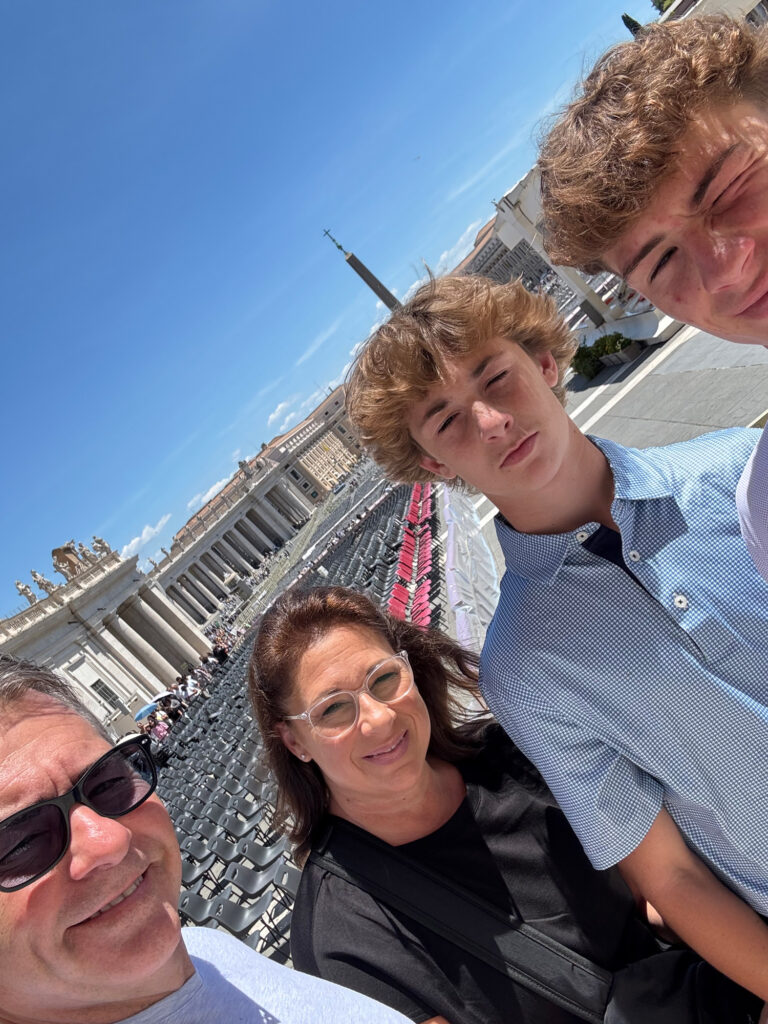
Visiting Vatican City in Italy
Dr. Nathan S. Bryan is a biochemist and physiologist that has more than 20 years of basic science and clinical research. His many seminal discoveries have resulted in dozens of issued U.S. and International patents. He is an international expert in nitric oxide and molecular medicine. Dr. Bryan is an innovator and successful entrepreneur who product technology is responsible for hundreds of millions of dollars in revenue worldwide. This content is not intended to replace medical advice from a physician.
Instagram @drnathansbryan
Twitter @drnitric
LinkedIn @drnathansbryan
www.drnathansbryan.com
https://www.youtube.com/@DrNathanSBryanNitricOxide
www.N1o1.com
www.bryantherapeutics.com

